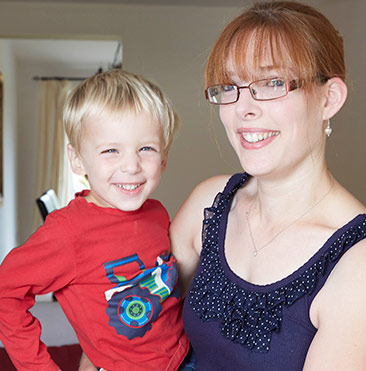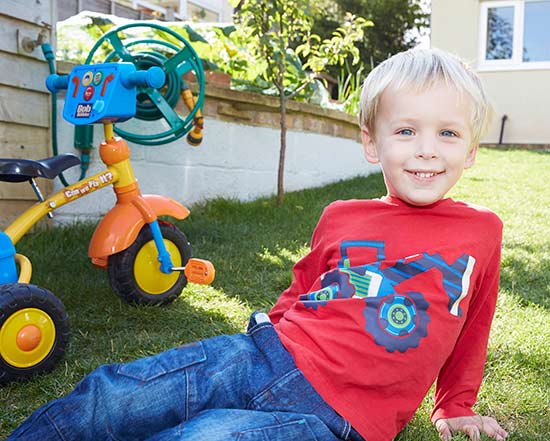|
|
Starting school with 13 severe food allergies.... |

Callum is four and is about to start school. But Callum also has 13 severe food allergies as well as pollen, dog and cat allergies. His mum, Nathalie, explains the steps they have taken to ensure that Callum can go safely to school and enjoy a full school life. Allergies are life changing, whatever time in your life they make their presence known. It’s a challenge that takes time to adapt to. Callum has had multiple severe life threatening allergies since a very young age: life threatening allergies to all forms of nuts, all seeds, tomatoes, strawberries and all forms of dairy products and severe allergies to grapes, all citrus, wheat, gluten, egg, plum, kiwi, grass pollen, tree pollen, certain dogs and certain cats. This has meant that dealing with allergic reactions, and eating a restricted diet is all he has ever known. We’ve had time to find our new ‘normal’ and adapt to it with success, but what happens when you reach a new stage in life, and the goal posts change? Callum is due to start school in September, and whilst this is an exciting new chapter, it’s not without significant challenges for him, and for us as his parents. The most important thing to remember, is that empowerment is crucial. Learning how to cope with and also successfully live with allergies is the fundamental lesson to learn.
But that’s only half the story. A calm and sensible approach to educating the school was our approach, which included:
It can seem quite a daunting prospect when dealing with this situation, not least because you are having to put your complete trust into someone else.
We know and can read the signs of a reaction better than anyone, including:
It was crucial that we communicated this to the new school, so that they can work with Callum, and understand him better. Aside from this, the biggest concern to us still, even with the education of the new teachers, is cross contamination. We as adults know to be mindful of what we touch, and to wash our hands as soon as we’ve eaten anything that could put Callum at risk. But what of his new peers? We’ve combated this, by dealing with it head on. On the first day of term, all pupils in reception class receive a pack for their parents as standard. As part of this pack, we’ve created a letter from Callum, worded very carefully to get the parents on side. We don’t expect anyone to change what they do, nor should they. It’s about educating them about Callum, and empowering his peers to look out for him, to know when to get help should he need it and to understand about cross contamination and good hand hygiene to keep him as safe as possible. Young children instinctively protect each other, and it’s this that we’re banking on, the want and need to keep one of their own safe. Callum's letter:
From our experience so far, we believe we’ve found the best possible school for him. They’ve been receptive to everything we’ve discussed thus far, and they are protective of him, and want him to stay as safe as possible.
For now, it’s time to trust.
August 2016 For another mum and son approach to managing severe allergy, see Karen and Jamie's story here. |

 Whilst your instinct as a parent is to try to remove all allergens, the reality is, this simply isn’t practical. It might keep Callum safer during primary school, but he would still need to learn to cope with them around him outside of school. And what would happen when he reaches secondary school? Requesting 600 pupils not to bring certain things into school is one thing, but more than 1000? And what about university? Or while out and about on a day out in London for example? The tube alone will house many of Callum’s allergens. It’s far better to educate Callum about how to deal with his allergies!
Whilst your instinct as a parent is to try to remove all allergens, the reality is, this simply isn’t practical. It might keep Callum safer during primary school, but he would still need to learn to cope with them around him outside of school. And what would happen when he reaches secondary school? Requesting 600 pupils not to bring certain things into school is one thing, but more than 1000? And what about university? Or while out and about on a day out in London for example? The tube alone will house many of Callum’s allergens. It’s far better to educate Callum about how to deal with his allergies!  Dear Mums, Dads and Carers
Dear Mums, Dads and Carers











